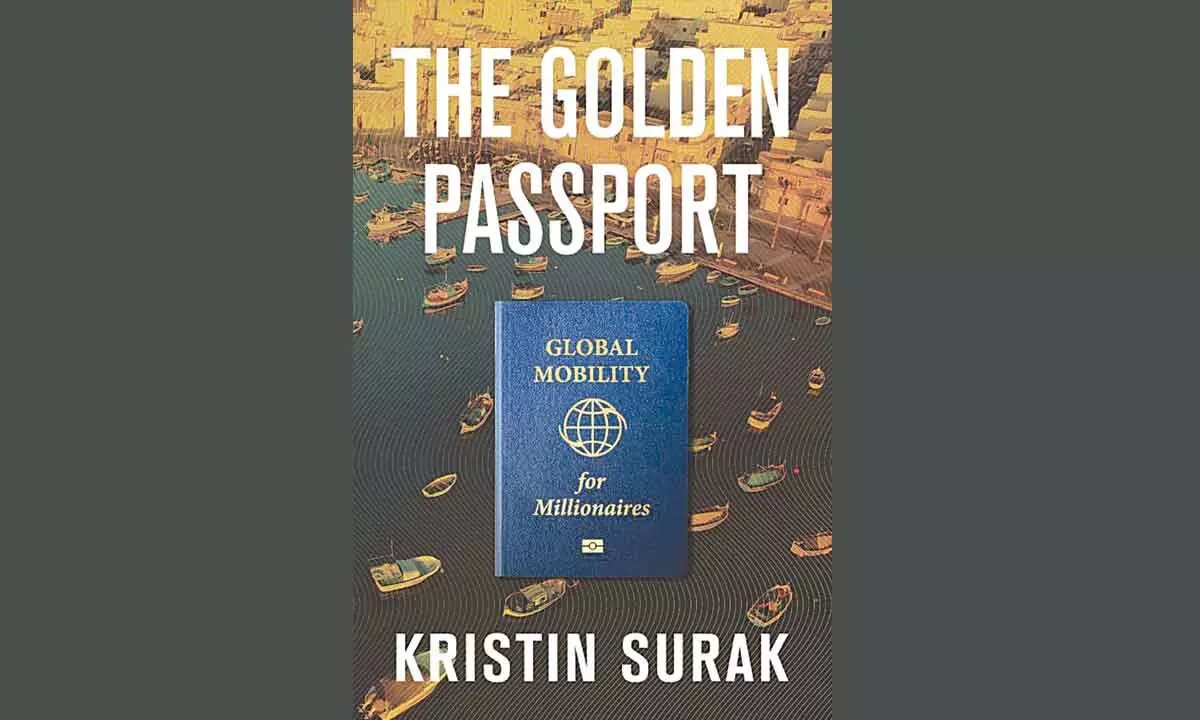‘Golden visa’ or ‘golden passport’ remains a dilemma for those seeking overseas citizenship
Golden passports are more desirable as they assure rights and citizenship
image for illustrative purpose

Golden visa programs give high-net-worth individuals (HNWIs) the option of physically relocating to a favourable jurisdiction — either now or upon retirement — and becoming residents of that state with full legal rights, including the right to live, work, study, and receive healthcare in that country
Investor citizenship and residence schemes, more colloquially known as “golden passport” and “golden visa” programmes, allow people to buy citizenship or residences in a host country at a substantial financial contribution. In most cases, this takes the form of investment in real estate projects or a donation to the host country’s government. But if you think these schemes are just used by shady businessmen trying to dodge tax bills, think again. A research by Dr. Kristin Surak has found that these schemes are a lot more popular than one might realise.
It should be noted that more than 60 countries operate golden passport or visa programmes, which see hundreds of thousands of people using their purchasing power to gain a grade of membership in a polity each year. In the European Union alone, more than 1.30 lakh people gained citizenship or a residence through programmes that are found in half of EU member states. In total, they have brought in over 21.4 billion Euros to the EU, Dr. Surak’s research shows. Golden passports are more desirable than golden visas as they come with more rights and give their holders citizenship rather than simply residence. However, they are the rarer of the two, with about 12 countries worldwide offering such schemes. The most well-known include Saint Kitts and Nevis in the West Indies, as well as Turkey and Malta.
In its most basic form, golden visa acquisition, or residence by investment and citizenship by investment, denotes the process whereby qualified, vetted candidates are granted either full residence or citizenship rights in exchange for a defined economic contribution to the host country. Golden visa programs give high-net-worth individuals (HNWIs) the option of physically relocating to a favourable jurisdiction — either now or upon retirement — and becoming residents of that state with full legal rights, including the right to live, work, study, and receive healthcare in that country.
A golden visa provides investors and their families with access to new markets and a host of business, career, educational, healthcare, tax, and lifestyle opportunities on a worldwide scale, for both present and future generations. Many golden visa programs allow the successful applicant to apply for citizenship after a few years of residence, such as the Portugal Golden Residence Permit Program, which offers citizenship eligibility after five years. The Greece Golden Visa Program allows investors to apply for citizenship after seven years, and the Italy Residence by Investment Program after 10 years.
What’s interesting about golden passports is that the countries offering the programmes are traditionally small islands with populations of less than a million. What people want is not so much the benefits that citizenship gets them in that country, but the rights that citizenship secures in third states, which are usually established through longstanding treaty agreements. If you buy citizenship in an EU member state such as Malta, you gain citizenship rights not just in Malta but all the other countries in the EU, meaning you gain the ability to work, travel and study in 27 member states.
In an example closer to home, before Brexit, it was possible to purchase citizenship in Turkey and then secure a residence visa in the UK with relative ease via the Ankara Agreement. But mostly what they want is easier cross-border mobility, an insurance policy against an uncertain future, and business benefits.
To obtain a golden passport, or the more widely available golden visa, you don’t have to live in the country concerned in many cases. In fact, many people never even visit the country where they have bought citizenship. “These schemes are about gaining mobility and options in an uncertain world, where there are huge inequalities between citizenships,” the provision indicates.
Those living in the Global North tend to be much less affected by visa restrictions and requirements. Often, they don’t have to apply for visas and, if they do, they often don’t face resistance in getting approval. For people in the Global South, however, having a golden passport or visa can make life considerably easier.
For countries selling citizenship and residence, these schemes can make a big difference to their GDP. For Greece and Portugal, for example, they bring in the equivalent of 10 to 15 per cent of foreign direct investment (FDI). For Cyprus, the programme has accounted for nearly five per cent of GDP in recent years. It has been credited with bailing out the real estate sector after 2008 in Cyprus. In Greece, the real estate market was in decline until about 2018 and it wasn’t until a rush of golden visa buyers came in that its recovery began.

